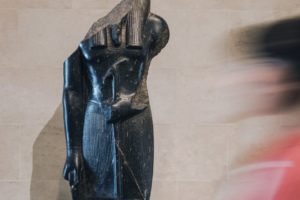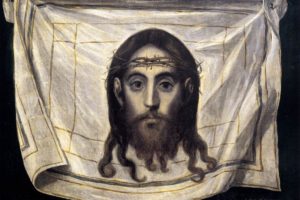When I first came to the mission field I spoke with a teammate who told me about a man named Mamadou who I would meet shortly. He told me, “Mamadou is a Muslim background believer from Africa. And just so you know, he fasts more than he eats.” When my teammate relayed this information to me, I thought he was being facetious. Then I met Mamadou.
Mamadou has been following Christ for over 30 years. He came to Christ during his teenage years in West Africa. Coming to Christ cost him everything. Literally. He was kicked out of his house and excommunicated from his family. But more than Mamdou’s back story, I was blown away by the man that God has molded him into in this present day. He is God’s man. He is God’s man in a way that is striking. He walks with God in a way that I could only dream of. As I ask questions about his walk with the Lord, he tells me that he usually fasts four days a week. So my teammate was not kidding. He truly fasts more than he eats. Beyond this, he is a mouthpiece for the Gospel; always out sharing with others.
What is so striking about Mamadou is that he appears to have hardly any formal theological training. And yet he is a man dominated by God’s Word, prayer, fasting and evangelizing. He is dominated by these in a way that I am not. He is dominated by these things is a way that I have never seen among those who go through formal theological education.
In light of all my time spent with Mamadou in the past year, I have been forced to examine myself and ask some difficult questions. Questions about what it really means to follow after God. Questions like the following:
- Is it important to be well read theologically to follow hard after God? Does good theological reading enhance our walk or suffocate it? Are the two mutually exclusive?
- Why am I not like Mamadou despite having so much more theological knowledge?
- Is time reading theology truly time well spent?
There are more questions than these but this captures my basic struggle. After meeting Mamadou, I was left staring at glaring personal shortcomings in a way I had never seen before. It could never be said of me that I fasted more than I ate. I could often quote Calvin, Watson, Lewis, Bonhoeffer or others but I wasn’t quoting a lot of Bible.
Before I make a brief point, I must own up to my personal sins and shortcomings. No doubt the reason for my failure to create a praying and fasting life like Mamadou falls on my shoulders. No doubt the reason I quoted more theology than Bible is largely my problem. That being said, I believe the point I make below is still valid.
Coming to the mission field, these deficiencies looked enormous. And they were/are. But what is more disturbing about all of this is that I did not see it coming. I had been to Bible school and ordained. I thought I was ready. But the things that Bible school taught me were to be a “good student of the word and read the great theologians.” So I built a life of following Christ that was built largely on knowledge. Yes, I had my personal devotions and I prayed and I even shared with others. But I also spent vast amounts of time reading theology because that seemed to be what was valued as a disciple of Christ. And the more I learned and even practiced, the more I was esteemed by those in the circles that I ran in. To be Godly was in large part—though not totally—to be theologically smart. Of course it is never phrased in such a fashion but the very apparatus teaches this reality whether it is explicitly stated or not.
My friend Mamadou had a different way of following Christ. For all the time I spent reading commentaries or theology, he spent that same amount of time in reading God’s Word, prayer, fasting and evangelizing. The different methods of pursuing God produced very different results. Mamadou was light years ahead of me spiritually.
So let me ask you my brothers and sisters: Are we better off reading “helpful” books or doubling down on our time in God’s word? Are we better off studying up on the latest baptism controversy or setting aside our Saturday for prayer and fasting? Is your time better spent reading articles on good Christian blogs (and yes, I realize the irony/hypocrisy) or in going out to engage those who have never heard the Gospel?
I submit for your consideration that we ought to major on the things Jesus has explicitly commanded and minor on the things, which he has not.
The difference will be greater than you might think.




2 Comments
Leave your reply.